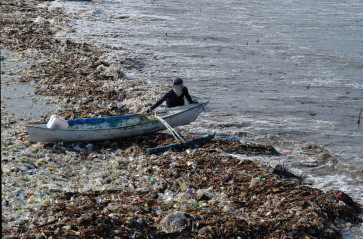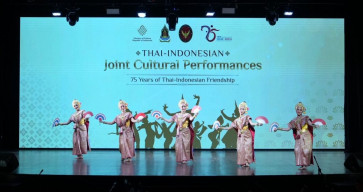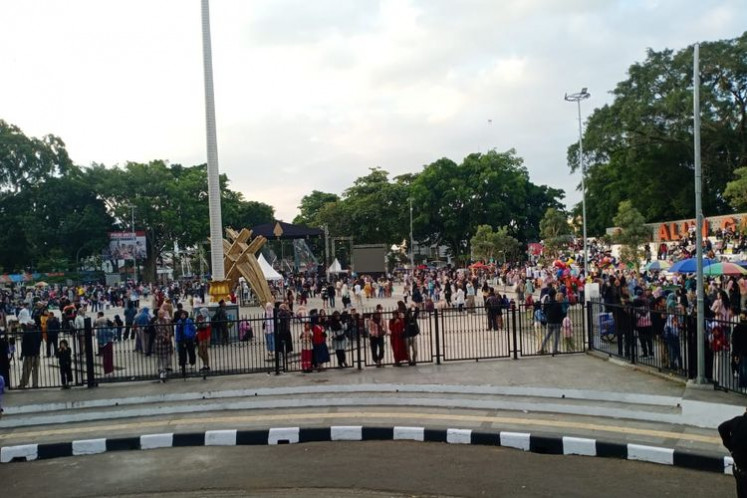Popular Reads
Top Results
Can't find what you're looking for?
View all search resultsPopular Reads
Top Results
Can't find what you're looking for?
View all search resultsLegal challenge won't affect Rembang plant: Semen Indonesia
The construction of Semen Indonesiaâs new cement plant in Rembang, Central Java, is going ahead, despite a legal challenge launched by an environmental group in a local administrative court, the companyâs top executive has said
Change text size
Gift Premium Articles
to Anyone
T
he construction of Semen Indonesia's new cement plant in Rembang, Central Java, is going ahead, despite a legal challenge launched by an environmental group in a local administrative court, the company's top executive has said.
Semen Indonesia president director Dwi Soetjipto said Tuesday that the company would not halt its Rembang project, which is costing the state-run cement giant around US$400 million in investment, as he was confident the court would rule in favor of the cement producer.
Dwi said the firm had not violated any regulations, as it had obtained all the required permits for the operation of the new cement plant and in its limestone mining operations, in contrast to the allegations launched by local groups and the Indonesian Forum for the Environment (Walhi).
'We are optimistic that we will win the case and, therefore, we will continue with our plan. We have obtained 35 permits to establish the plant and we have also passed 12 stages of the Amdal [Environmental Impact Analysis], so we will have no problem in court,' he said.
Construction on the Rembang facility began back in June, and it is expected to start production in 2016. The new plant will have the capacity to produce 3 million tons of cement per year.
The factory is being built on 55 hectares of land, located near a local limestone quarry. However, a group of locals and Walhi filed a lawsuit with the Semarang State Administrative Court (PTUN) in September, calling for the court to revoke the company's permits to construct the facility.
The groups claim that people living in the mountainous Kendeng area in Rembang are scared that the development of the factory and the limestone mining will degrade the environment and threaten the water sources that are used by thousands of people in the region.
'The factory is located quite far away from a local clean water source. We have also designed a 4 kilometer long, 20 meter high conveyor belt to transfer the mined materials to our factory, which we believe will minimize dust and damage to the local environment,' Dwi said.
- The company is confident the court will rule in its favor
- It maintains it has all necessary permits in place
- Walhi says new plant and limestone mining threaten environment, water sources
'Moreover, around 80 percent of Rembang residents support the facility's construction; only a few oppose it. The facility will absorb human resources in the area as well as generate income for the local government, in an area where no large industries operate,' he claimed.
He added that the new plant was expected to help the company boost its total cement production to 39.3 million tons by 2016 and to 40.8 million tons by 2017. Semen Indonesia produces 31.8 million tons per year.
To meet this target, the company also launched construction of the $352 million Indarung VI cement factory in Padang, West Sumatra, in May.
Indarung VI is also designed to produce 3 million tons of cement per year. The Padang factory is expected to commence operations in the second half of 2016.
The firm also plans to spend $300 million to establish a new plant in Vietnam next year, to expand the production capacity of its Vietnamese subsidiary, Thang Long Cement Company (TLCC), by establishing a new plant with a total production capacity of 1.5 million tons of cement per year.
The TLCC's current production capacity stands at 2.5 million tons per year, which is sold in Vietnam as well as exported to neighboring countries, such as Singapore.
The company has recently earmarked around Rp 4 trillion each year to establish new plants to meet rising cement demand, which is expected to increase by around 4 percent this year and around 6 percent next year.










